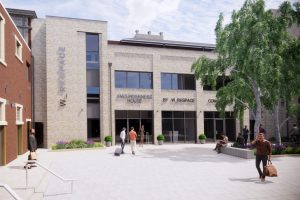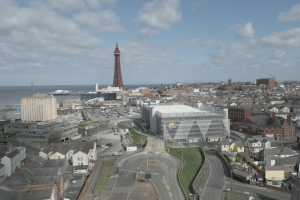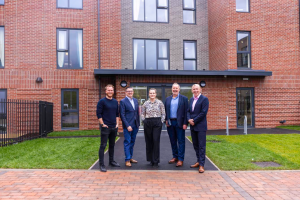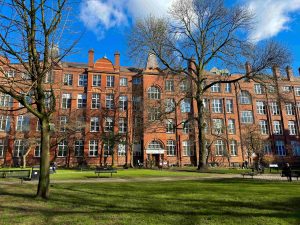Cities need to be "digitally intelligent", says Bernstein

MANCHESTER needs to become a “digitally intelligent” city and concentrate on key growth sectors if it is to maintain its place in world rankings over the next decade, according to city council chief executive Sir Howard Bernstein.
Speaking at a debate on the future of cities at the British Council for Office conference at Manchester Central last week, Sir Howard said that the BBC’s arrival at MediaCityUK in Salford Quays had “driven more outcomes than we could have possibly imagined , boosting the city-region’s reputation not only in the media & creative sector but also in technology.
“Successful cities over the next decade are going to be be cities that are digitally intelligent…cities which are able to drive not just new innovations around communications but how they react to changing consumer choice,” he said.
He added that Manchester had seen “significant investment in our ICT sector”, which has grown by 50% over the past seven years.
This has implications on the commercial property sector, he said, as the space and infrastructure requirements of technology companies differ from those of a financial or professional services company.
“Flexible property solutions are going to have to be brought forward to respond to the value requirements of occupiers, and more specifically the needs of occupiers’ for a flexible workforce.”
Sir Howard praised the coalition government for placing “cities right at the heart of the agenda”, and he said that the £1.2bn City Deal Manchester has agreed with the government allowed it to make investments in infrastructure, skills, tourism and other key assets which would help to boost the city-region’s economy.
“If the Chancellor announces funding for the Northern Rail hub, which I believe he will, in infrastructure terms this part of the world is better placed than most to respond to the challenges ahead.”
Also speaking at the debate was University of Manchester’s Alan Harding, who is a professor of urban & regional governance.
He said that although it is true that the world is becoming flatter due to growth in emerging markets, they key cities within each are becoming more important.
“Increasingly, it seems to me that we are going to be dominated by a smaller number of very powerful places. Big, dense well-connected city-regions drive regional and national economic performance,” he added.
“To the extent that we think about the greatness of cities, there are few key words which seem to keep propping up in the literature. A great city is a function of its size, its density, its diversity, its connectedness and its tolerance.”
Author, broadcaster and ex-MP Matthew Parris, argued that the picture for UK cities was mixed.
“In any contest between ways of living over the last two millennia, the cities is the undisputed victor. Cities are winning,” he said. “It isn’t a question of ‘whether cities?’. It is a question of ‘which cities?’.”
However, he warned that when some cities start to fail politicians often obsess with tackling decline as opposed to promoting growth.
“Politicians have been to slow to accept this – obsessing over dying urban spaces and wasting billions on housing regeneration when the reason for living there in the first place has evaporated and the money would have been better spent on tax breaks for local businesses.
“Sometimes, the best solution for a depopulating slum is a bulldozer and a landscape gardening contractor,” he argued.
“The collective response to urban decline is to throw a strategy at it – or two. Strategies don’t pay wages. You can’t plonk down on a place like Liverpool the trophies and insignia of success – the galleries, coffee shops, renovated Victoriana – and then fill the empty spaces with social housing for people who won’t be patronising the coffee shops, galleries or looking for fine dining.”
He also argued that the success in building London as an international city had come at a price and was “sucking the life” out of other major cities.
“I’m impressed by what’s happening in Manchester but I’m not yet convinced that it has found the answer. Too much of it still isn’t real. You can’t run a whole metropolis on students and conference centres and bars. I know there’s more to Manchester than that, but there needs to be much more.
He added that Birmingham “is heading for huge difficulties, Liverpool is just hollow, Glasgow isn’t miles better, Newcastle struggles bravely on and Belfast is a bottomless pit for public subsidy”.
He suggested that the most effective solution to this is to improve links between the cities, particularly through implementing the High Speed 2 rail line through to Manchester and Leeds.








